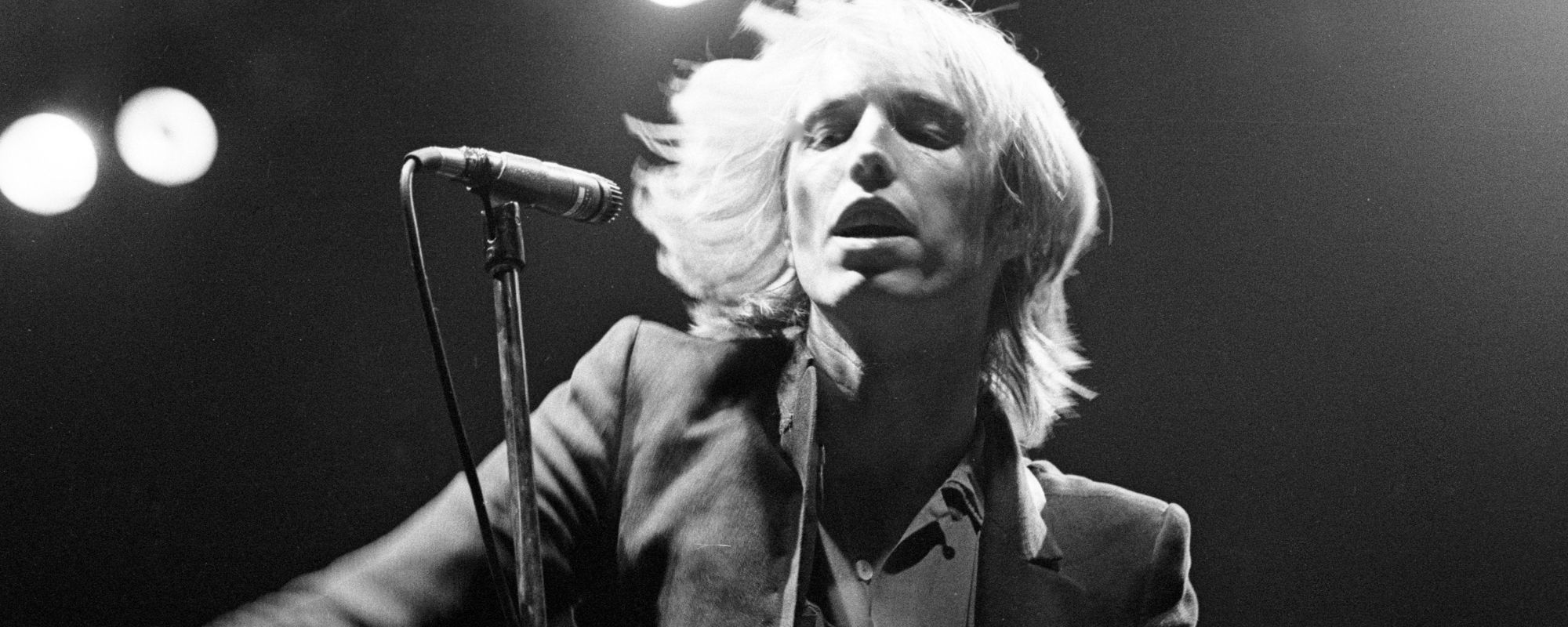By the time Tom Petty and the Heartbreakers released their eleventh studio album in 2002, they had been in the music industry for decades. Petty and his band watched how rock ‘n’ roll (and the suits that sold it) changed over the years for better or worse. Around the time Petty was writing the material for The Last DJ, he felt like the industry had slid too far to the latter category.
Videos by American Songwriter
So, when radio stations began banning the title track, he took it as a sign that he struck the right nerve. It was an accomplishment, not a hindrance.
Why Tom Petty Was Happy To Have This Song Banned From the Radio
When Tom Petty and the Heartbreakers released their 2002 album, The Last DJ, radio was still alive and well. Television and personal music devices had become primary sources for musical consumption. But in an era before smartphones and widespread streaming sites, radio was hardly obsolete. Despite what the album and song title might suggest, Petty wasn’t speaking literally about disc jockeys when he said, “There goes the last DJ who plays what he wants to play.”
The DJ was merely a metaphor to carry a point. “The Last DJ is a story about morals more than the music business,” Petty explained in a 2002 Rolling Stone article. “It’s really about vanishing personal freedoms.”
For those who didn’t catch Petty’s literary device, The Last DJ seemed like a derogatory dig at the disc jockeys responsible for pumping tunes through car radio speakers across the country. Consequently, many radio stations banned Petty’s title track, “The Last DJ”, to his great delight.
“I was elated when my song was banned,” Petty told Rolling Stone. “I mean, nothing could have complimented me more than to hear they just banned it as such-and-such a station because it’s anti-radio. In 2002, to have a song banned that doesn’t have a dirty word, doesn’t advocate violence—it’s fascinating, you know. Like, what are you afraid of? No record has ever been made that was more pro-radio, you know. I remember when the radio meant something.”
“We enjoyed the people who were on it,” Petty continued, “even if we hated them. They had personalities. They were people of taste, who we trusted. And I see that vanishing. I thought it was a good metaphor to start the album.”
The Rock ‘n’ Roller Said Some Modern Music Made Him “Sick”
Tom Petty certainly didn’t mince words when he was speaking to Rolling Stone about the radio. “I don’t really give a flying f*** about any of it,” Petty said. “I’ve tuned out.” But a few questions later, Petty revealed that he was listening.
“I’m frustrated by what I hear,” he said. “Maybe it’s not meant for me. Personally, I’m way too bright for a lot of the hip-hop lyrics to affect. I’m much too smart to think that jewelry or how cool I am is really going to change much about my personality. If you’re dumb enough that it entertains you, have a great time. But I’m not seeking more than that.”
“When I was a young rock ‘n’ roll star, I was really fascinated and shocked at times by the power that I had. By the power of my words. [I was] shocked that it can be taken wrong,” he said. “I don’t believe in censorship. But I do believe that an artist has to take some moral responsibility for what he or she is putting out there. These young kids are going to have to learn the hard way that you can actually do some damage.”
Despite countless radio stations banning the classic Tom Petty track from 2002, the song charted at a modest No. 22 on Billboard’s Mainstream Rock Tracks list. For those disc jockeys who couldn’t be turned into “a company man” or “a w****”, “The Last DJ” served as a de facto anthem for free musical expression, “top brass” be damned.
Photo by SGranitz/WireImage













Leave a Reply
Only members can comment. Become a member. Already a member? Log in.